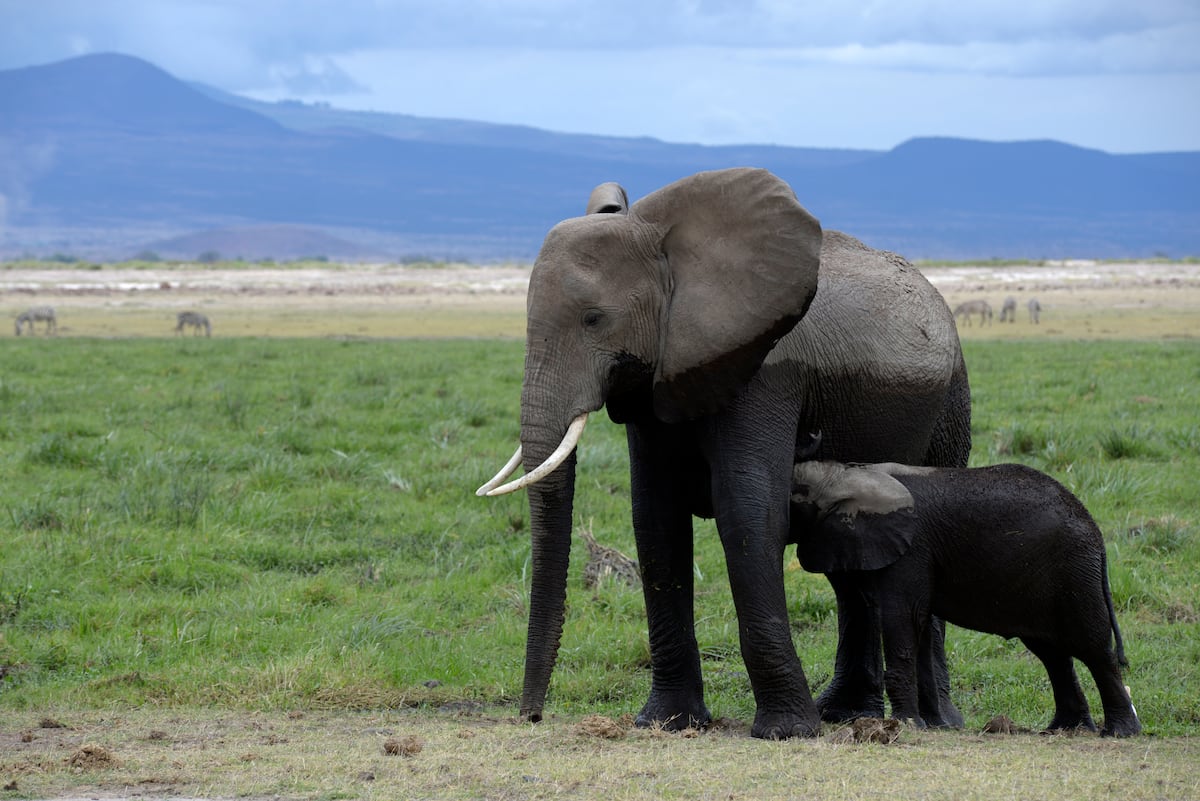
"It's been four hours since its birth, and it still hasn't tasted a drop of milk. With it are three desperate females: its mother, Tallulah, a 17-year-old first-time mother; Tara, a teenager from her family group; and Cynthia Moss, a U.S. scientist watching the scene from her car. I desperately wanted to do something, but I knew I shouldn't interfere, Moss writes in Elephant Memoirs. She had been watching Tallulah's clumsiness for a while, and she seemed completely bewildered."
"She followed baboons for years, and documented scenes that are hard to ignore: Vicky, Vee's first baby, failed to latch on to the nipple during her first day of life; her mother carried her upside down, and even dragged her and banged her on the ground for much of the day. Vicky wasn't as lucky as the baby elephant. She died after a month."
A newborn elephant in Amboseli National Park remained weak and unable to stand four hours after birth and had not yet tasted milk. Its mother Tallulah, a 17-year-old first-time mother, appeared clumsy and bewildered, initially preventing the calf from nursing until the calf finally latched and survived. By contrast, 47-year-old matriarch Deborah gave birth confidently and aided her calf, which nursed within ninety minutes. Long-term field observations of baboons recorded first-time mothers mishandling infants, with one infant dying after a month. Among primates, firstborn mortality can be up to 60% higher than that of later-born siblings, challenging assumptions about innate maternal competence.
Read at english.elpais.com
Unable to calculate read time
Collection
[
|
...
]